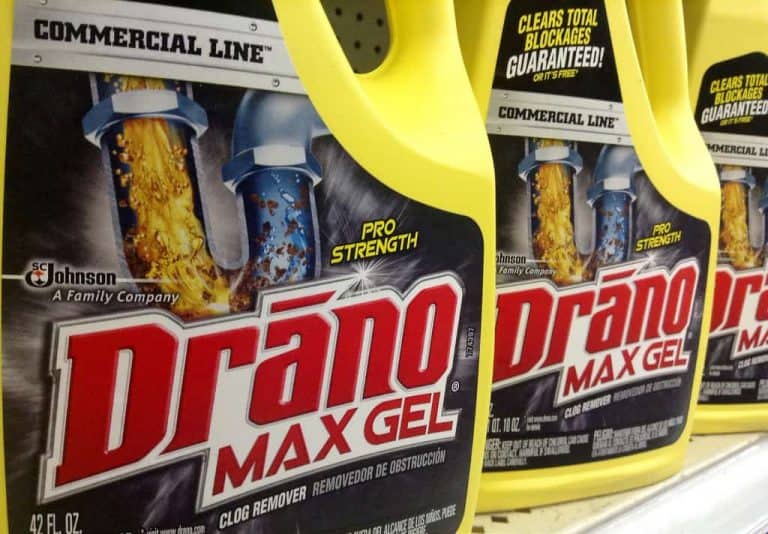Drano is a go-to for many homeowners but is actually very harsh on your drains.
It’s happened to all of us. You go to do the dishes or brush your teeth and the water in the sink won’t drain. You grab your snake out of the garage and try to unclog whatever it is that is causing the blockage and nothing happens. What’s next?
Drano of course! Not so fast. Even though Drano might relieve the problem temporarily, it can cause serious problems over time leading to expensive repairs that could have been avoided in the first place. Still don’t believe us?
Below we discuss what exactly Drano is, our top reasons why using it is a bad idea and some safer solutions to undo nasty clogs.
What is Drano and How Does it Work?
Drano is a drainage cleaner that consists of aluminum, salt, bleach, sodium nitrate and lye. When Drano is poured down a drain, several chemical reactions happen simultaneously.
First, the lye decomposes all the physical matter in the drain pipes. Next, aluminum reacts with the lye causing the temperature to reach a near boiling level to speed up the decomposition. Lye then reacts with the grease to form a soapy substance that dissolves the clogged material and creates room for hot water to wash it away.
All these reactions happening at once are much more than most residential drains and pipes can handle.
Why You Shouldn’t Use Drano
Health Risks?
As we mentioned above, Drano has the ability to dissolve virtually any organic matter. If it comes in to contact with your skin or eyes, the damage can be devastating. Inhaling the fumes can also cause serious damage to your lungs.
If you use Drano in a sink, it’s going to take at least 24 hours before conditions are safe enough to use the sink again.
Plumbing System Damage
Even if you use only use Drano once, the potential for bad things to happen to your plumbing system lingers for a long time.
Because of its corrosive nature, Drano can cause toilet bowls to crack, PVC pipes to melt or break and the glue that holds pipes together can be eaten away. If any of these things happen, you’re going to be left with an inoperable plumbing system and costly repairs.
Unpredictability When Combined with Other Substances or Equipment
If you’re using Drano with other plumbing equipment like a plunger, the liquid can easily splash up out of the sink and burn your skin, eyes and lungs.
If you use other cleaning products and Drano is still present in the drain, any number of chemical reactions can occur causing the creation of dangerous toxic fumes that are harmful to anyone in your house.
Bad for the Environment
Even if you use Drano successfully and there is none left in your drain or pipes, that substance has to end up somewhere.
When it exits your plumbing or sewage system, it can quickly contaminate water supply causing tremendous harm to plants and animals that might consume it.
Best Methods to Get Rid of Clogs
Plungers
If you’re faced with a clogged toilet, the best method is to grab a flange plunger. Flange plungers are bell-shaped and made specifically for unclogging toilets. Simply insert the plunger in the toilet bowl and aggressively move it up down until the material breaks up and you’re able to flush.
If the drain in your kitchen or bathroom sink is clogged, employ the use of a cup plunger that is made for flat surfaces in the same manner you would a flange plunger.
Drain Snake
If your clog is near the surface, drain snakes are a great way to clear the blockage. All you have to do is uncoil the snake and push it down the drain. With a little effort on your part the snake will break the clog apart and allow it to pass safely through your pipes.
Natural Enzymes
There are host of drain cleaners available that contain natural bacteria and enzymes that eat away organic waste and aren’t harmful to your sink or pipes. Though this method may take some time, it’s the safest way to get rid of a clog.
In the age of instant gratification, you’re probably tempted to reach straight for the Drano the moment you have a clog.
While doing so may seem like an easy fix at the time, the long-term repercussions can spell trouble for your plumbing system, health and wallet.
If you find that you just can’t unclog a drain using one of the simple methods above, your best bet is to call your local Einstein Pros plumbing experts and they will get the problem resolved quickly.
